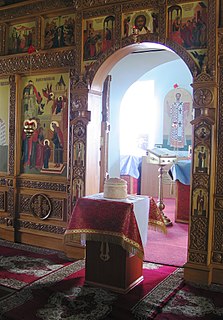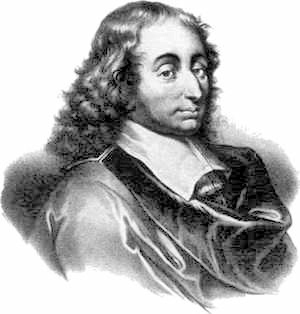
Easter, also called Pascha or Resurrection Sunday, is a festival and holiday commemorating the resurrection of Jesus from the dead, described in the New Testament as having occurred on the third day after his burial following his crucifixion by the Romans at Calvary c. 30 AD. It is the culmination of the Passion of Jesus, preceded by Lent, a 40-day period of fasting, prayer, and penance.
Computus is a calculation that determines the calendar date of Easter. Because the date is based on a calendar-dependent equinox rather than the astronomical one, there are differences between calculations done according to the Julian calendar and the modern Gregorian calendar. The name has been used for this procedure since the early Middle Ages, as it was considered the most important computation of the age.
Quartodecimanism refers to the custom of early Christians celebrating Passover beginning with the eve of the 14th day of Nisan, which at dusk is biblically the "Lord's Supper." 1 Corinthians 11:20

An artos is a loaf of leavened bread that is blessed during services in the Eastern Orthodox and Byzantine rite catholic churches. A large Artos is baked with a seal depicting the resurrection for use at Pascha (Easter). Smaller loaves are blessed during great vespers in a ritual called Artoklasia and in other occasions like feast days, weddings, memorial services etc.

The Eastern Orthodox Liturgical Calendar describes and dictates the rhythm of the life of the Eastern Orthodox Church. Passages of Holy Scripture, saints and events for commemoration are associated with each date, as are many times special rules for fasting or feasting that correspond to the day of the week or time of year in relationship to the major feast days.

Easter Saturday, on the Christian calendar, is the Saturday following the festival of Easter, the Saturday of Easter or Bright Week. In the liturgy of Western Christianity it is the last day of Easter Week, sometimes referred to as the Saturday of Easter Week or Saturday in Easter Week. In the liturgy of Eastern Christianity it is the last day of Bright Week, and called Bright Saturday, The Bright and Holy Septave Saturday of Easter Eve, or The Bright and Holy Septave Paschal Artos and Octoechoes Saturday of Iscariot's Byzantine Easter Eve. Easter Saturday is the day preceding the Octave Day of Easter.

Bright Week, Pascha Week or Renewal Week is the name used by the Eastern Orthodox and Byzantine Rite Catholic Churches for the period of seven days beginning on Easter and continuing up to the following Sunday, which is known as Thomas Sunday. Latin Rite and other Christian groups such as Anglicans refer to this period as Easter Week, not to be confused with the Octave of Easter, which includes the following Sunday.

Radonitsa, also spelled Radunitsa, Radonica, or Radunica, in the Russian Orthodox Church is a commemoration of the departed observed on the second Tuesday of Pascha (Easter) or, in some places, on the second Monday of Pascha.

Paskha is a Russian festive dish made in Eastern Orthodox countries which consists of food that is forbidden during the fast of Great Lent. It is made during Holy Week and then brought to Church on Great Saturday to be blessed after the Paschal Vigil. The name of the dish comes from Pascha, the Eastern Orthodox celebration of Easter. Besides Russia, Ukraine, etc., pasha is also often served in Finland.
Pasquale is a masculine Italian given name and a surname mainly found in southern Italy. It is a cognate of the French name Pascal, the Spanish Pascual, the Portuguese Pascoal and the Catalan Pasqual. Pasquale derives from the Latin paschalis or pashalis, which means "relating to Easter", from Latin pascha ("Easter"), Greek Πάσχα, Aramaic pasḥā, in turn from the Hebrew פֶּסַח, which means "to be born on, or to be associated with, Passover day". Since the Hebrew holiday Passover coincides closely with the later Christian holiday of Easter, the Latin word came to be used for both occasions.

Easter Week is the period of seven days from Easter Sunday through the Saturday following. It follows Holy Week. The synonymous term Octave of Easter indicates the Easter Week together with the Divine Mercy Sunday.

The Pentecostarion is the liturgical book used by the Eastern Orthodox and Byzantine Catholic churches during the Paschal Season which extends from Pascha (Easter) to the Sunday following All Saints Sunday.
Pascale is a common Francophone given name, the feminine for the name Pascal. The same spelling is also the Italian form of the masculine name Pascal, and an Italian surname derived from the given name.
An ecclesiastical full moon is formally the 14th day of the ecclesiastical lunar month in an ecclesiastical lunar calendar. The ecclesiastical lunar calendar spans the year with lunar months of 30 and 29 days which are intended to approximate the observed phases of the Moon. Since a true synodic month has a length that can vary from about 29.27 to 29.83 days, the moment of astronomical opposition tends to be roughly 14.75 days after the previous conjunction of the Sun and Moon. The ecclesiastical full moons of the Gregorian lunar calendar tend to agree with the dates of astronomical opposition, referred to a day beginning at midnight at 0 degrees longitude, to within a day or so. However, the astronomical opposition happens at a single moment for the entire Earth: The hour and day at which the opposition is measured as having taken place will vary with longitude. In the ecclesiastical calendar, the 14th day of the lunar month, reckoned in local time, is considered the day of the full moon at each longitude.
Pasqual is the Catalan equivalent of the Spanish given name Pascual, and a Venetian variant of Italian given name Pasquale. Pasqual is also a surname found in Spain and in Italy.
Pascual is a Spanish given name and surname, cognate of Italian name Pasquale and French name Pascal. In Catalan-speaking area Pascual has the variant Pasqual.
Pascoal is a masculine given name and a surname in Portuguese language. It is the Portuguese form of the name Pascal, Pascual (Spanish), Pasquale (Italian), Pasqual.







